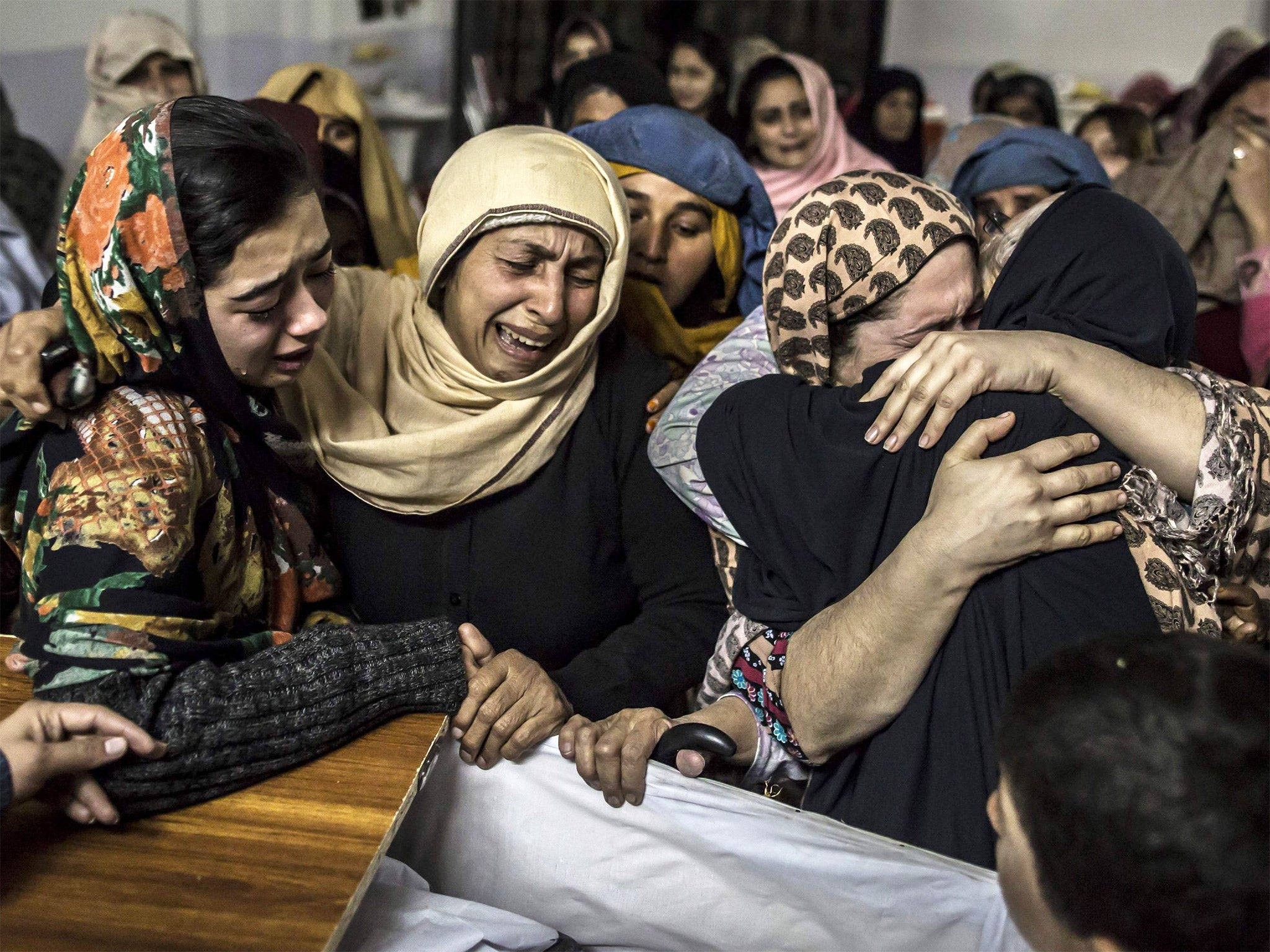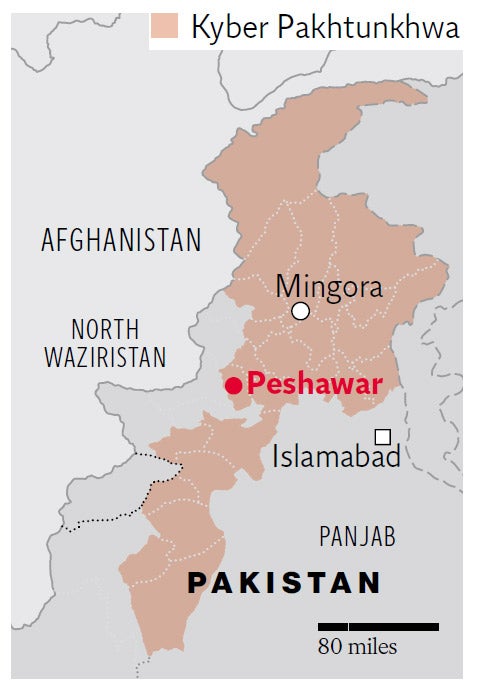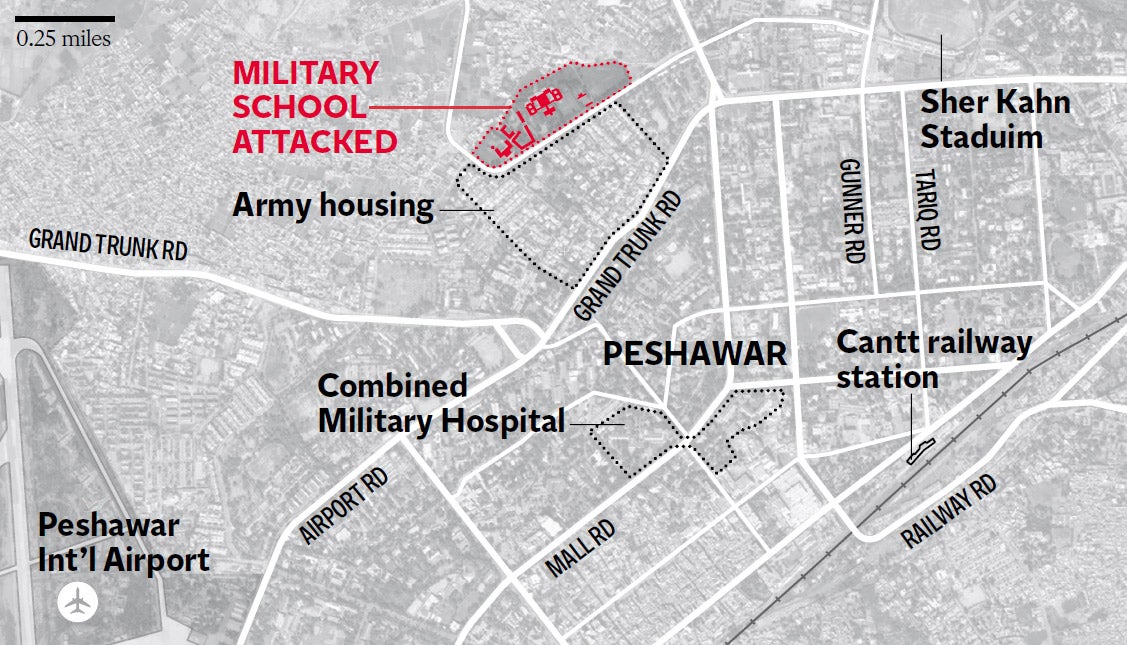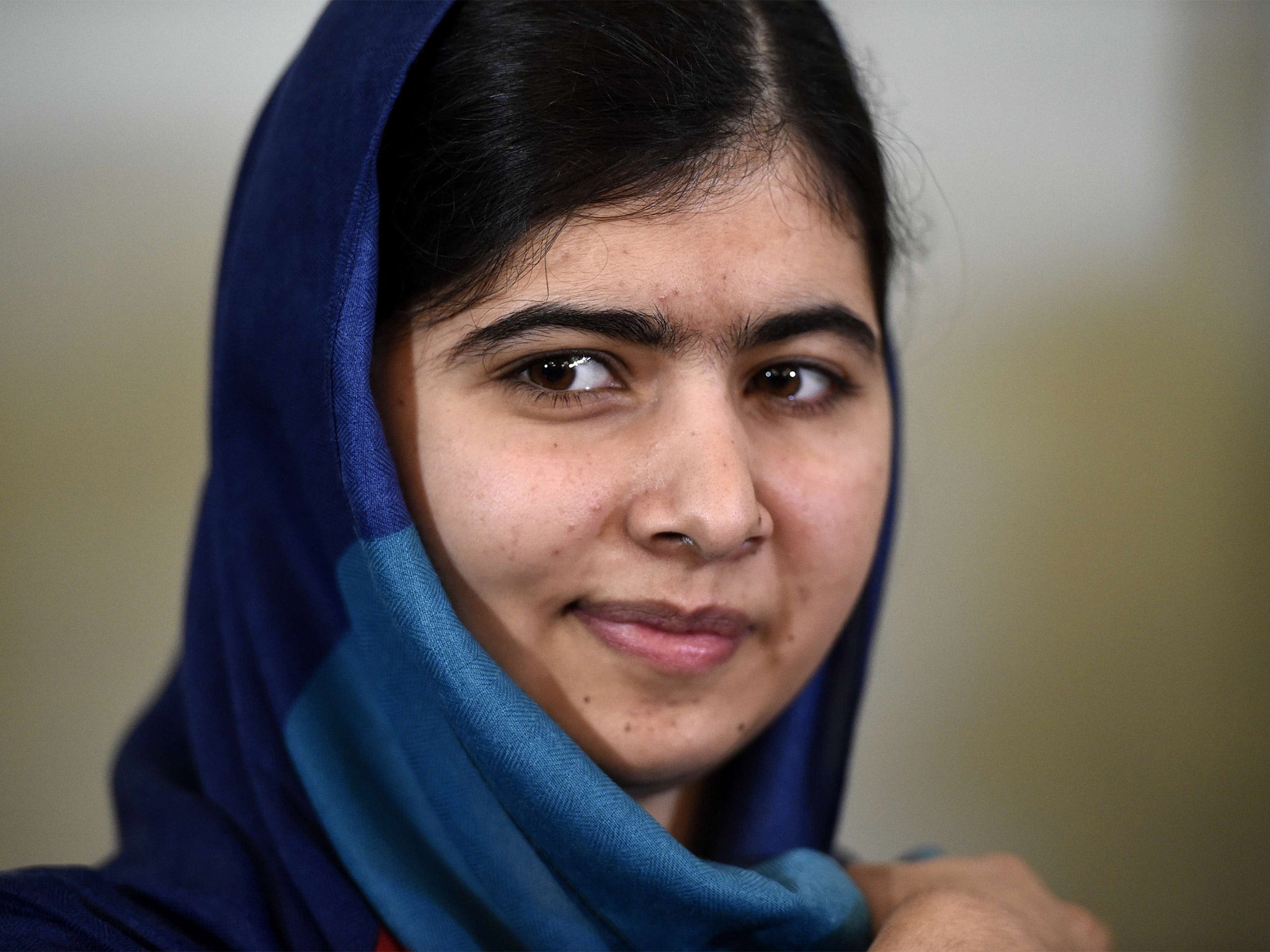Peshawar school attack: 'I will never forget the black boots...it was like death approaching me'
Survivors tell of eight-hour nightmare of merciless cruelty, while world leaders unite in outrage

Your support helps us to tell the story
From reproductive rights to climate change to Big Tech, The Independent is on the ground when the story is developing. Whether it's investigating the financials of Elon Musk's pro-Trump PAC or producing our latest documentary, 'The A Word', which shines a light on the American women fighting for reproductive rights, we know how important it is to parse out the facts from the messaging.
At such a critical moment in US history, we need reporters on the ground. Your donation allows us to keep sending journalists to speak to both sides of the story.
The Independent is trusted by Americans across the entire political spectrum. And unlike many other quality news outlets, we choose not to lock Americans out of our reporting and analysis with paywalls. We believe quality journalism should be available to everyone, paid for by those who can afford it.
Your support makes all the difference.The first lesson of the day for 10-year-old Irfan Shah at Peshawar’s Army Public School was social studies. But as he settled down to his books, he was not to know that his world was about to be blown apart.
“I was sitting in my class when I heard firing outside. Our teacher first told us that some kind of drill was going on and that we do not need to worry,” he said. “Then the sound came closer. Then we heard cries. One of our friends opened the window. He started crying as there were several schoolfellows lying on the ground outside the class. Everybody was in panic. Two of our class fellows ran outside in panic. They were shot in front of us.”
It was the beginning of an eight-hour massacre in which 132 of the school’s 1,092 students and nine of the staff were to die, with hundreds more injured. A teacher was burnt to death in front of the students in a classroom, a military source told a US TV network.
The nightmare only ended after nightfall as Pakistani army commandos went from classroom to classroom, checking that all the militants were accounted for. Nine died during the day, several blowing themselves up in the school and killing students as well as themselves. Seven soldiers were wounded. By the end of the day the school’s concrete buildings were reduced to smoking rubble.
In another classroom of the Army Public School in the heart of the most dangerous city in Pakistan, a teenage student named simply as Khan was also getting down to work when, as he later recalled: “Someone screamed at us to get down and hide below the desks.” Within seconds the gunmen were among them. “They shouted ‘Allahu Akbar’ [‘God is great’] before opening fire. I saw a pair of big black boots coming towards me. This guy was probably hunting for students hiding beneath the benches. ‘There are so many children hiding beneath the benches, go get them,’ one of the men ordered another,” Khan said.
The black boots came towards him and Khan was shot in both legs below the knee. “I felt searing pain,” he said. “I folded my tie and pushed it into my mouth so that I wouldn’t scream. The man with big boots kept on looking for students and pumping bullets into their bodies. I lay as still as I could and closed my eyes, waiting to be shot again. My body was shivering. I saw death so close. I will never forget the black boots approaching me – I felt as though it was death that was approaching me.”

He waited until the men left then realised he couldn’t walk then crawled to the next room where he saw the burnt body of the school office assistant. He crawled behind a door to hide and lost consciousness.
Another student, 15-year-old Shahrukh Khan, was also shot in both legs but survived by hiding under a bench. “One of my teachers was crying,” he said from hospital. “She had been shot in the hand and was crying in pain. One terrorist then walked up to her and started shooting her until she stopped making any sound. All around me my friends were lying injured and dead.”
Pakistan has lived with terrorist outrages for years, but the scale and cold-bloodedness of this latest attack resonated around the country.
The Prime Minister, Nawaz Sharif, flew to Peshawar to monitor the operation.

Announcing three days of national mourning, he said: “This was a national tragedy, unleashed by savages. No one should be in any doubt: this struggle, this war will continue. The government started the anti-terrorist operation in conjunction with the army and it’s now showing results. It will continue until terrorism is rooted out from this land. I appeal to the nation to show unity at this critical juncture. No one should have doubts about our determination to fight terrorism. We will take revenge for each and every drop of our children’s blood that was spilled today.”
Responsibility for the attack was quickly claimed by Tehreek-e-Taliban, the Pakistani Taliban, whose strongholds in North Waziristan, close to the Afghan border, have been under sustained assault by the Pakistani army since June. In that time at least 1,200 suspected militants are said to have been killed. The spokesman for the group, Muhammad Umar Khorasani, said: “We selected the army school for the attack because the government is targeting our families and females. We want them to feel the pain.”
The attack began at 10am. Major-General (retired) Athar Abbas, a former spokesman for the Pakistani army, told the BBC: “Six terrorists came in front of the school in a small Suzuki van. One of them got out and came to the school gate and blew himself up. When the security guards rushed to the spot, this allowed the others to get into the school. There was a function in the school, an assembly in the auditorium, saying farewell to ninth and 10th-grade students. They started firing in the auditorium and three of them blew themselves up.”
Ahmed Rashid, a Pakistan security expert, said: “I think there were several messages here. First of all I think they attacked something that was very sensitive to the army: many of the soldiers and officers who are fighting the Taliban have their children in this school. So this is an attempt to demoralise the military.
“I think the second message is to do with Malala [Yousafzai]. Remember that Malala has been receiving accolades from all over the world, and remember she was shot by the Taliban and she has been advocating education for all, and the Taliban have been very strongly opposing her view on education. So they are sending a very strong message that ‘we don’t like your schooling system and we want an Islamic schooling system’.
“The third reason is that Peshawar has become almost an ungovernable city now. Terrorism there is rampant. We know that there are Taliban cells inside the city which the authorities have not been able to get at, so really they can attack practically anywhere they want to.”
Malala Yousafzai, 17, who was shot by the Taliban in 2012, said: “I am heartbroken by this senseless and cold-blooded act of terror in Peshawar. I condemn these atrocious and cowardly acts and stand united with the government and armed forces of Pakistan whose efforts so far to address this horrific event are commendable. Along with millions of others around the world I mourn these children, my brothers and sisters, but we will never be defeated.”
Pakistan has come under immense pressure, particularly from the US, to confront this enemy in its midst, and after many delays a major assault got under way in June. Two weeks of bombing raids on Taliban strongholds around Miranshah, the capital of North Waziristan, were followed by artillery and tank assaults. Half a million civilians fled the region.
“By targeting students and teachers in this heinous attack, terrorists have once again shown their depravity,” Barack Obama said. “We stand with the people of Pakistan, and reiterate the commitment of the US to support the government of Pakistan in its efforts to combat terrorism and extremism.”
David Cameron said: “The scale of what has happened in Pakistan simply defies belief. It is a dark, dark day for humanity when something on this scale happens. There is not a belief system in the world that can justify such an act. I think what this shows is the worldwide threat that is posed by this poisonous ideology of extremist Islamist terrorism.”

Tehreek-e-Taliban was formed as a result of the siege of a mosque in the Pakistani capital Islamabad in 2007, which ended in a bloody assault by the army. Thirteen militant groups united to create the new formation, their goals being resistance to the Pakistani state, imposition of sharia and a plan to unite against Nato forces in Afghanistan – though the great majority of their attacks have been confined to Pakistani soil.
Like the original Afghan Taliban, its membership is predominantly Pashtun, and its roots are in the fiercely independent Pashtun tribal areas in the lawless border lands between Pakistan and Afghanistan. But it is not directly affiliated to the Afghan Taliban.
In the past year it has been damaged not only by the Pakistani army’s campaign, but also by internal splits. Following the deaths of its first two leaders, its present chief is Maulana Fazlullah, known as Maulana Radio because of his nightly broadcasts to the Swat Valley – the former home to Malala Yousafzai and her family, and a stronghold of the Pakistani Taliban until it was brutally flushed out by the army in 2011.
Reaction: ‘This is a perversion’
“I am heartbroken by this senseless and cold-blooded act of terror in Peshawar that is unfolding before us. Innocent children in their school have no place in horror such as this… but we will never be defeated.” Nobel Peace Prize winner Malala Yousafzai
“The killing of innocent children is contrary to Islam.” Afghanistan’s President, Ashraf Ghani
“There is not a belief system in the world that can justify such an act. I think what this shows is the worldwide threat that is posed by this poisonous ideology of extremist Islamist terrorism. It is nothing to do with one of the world’s great religions – Islam, which is a religion of peace. This is a perversion.” David Cameron
“The news has shaken me deeply. The hostage taking and murder of children and youth is barbarity that cannot be surpassed.” Germany’s Chancellor, Angela Merkel
Join our commenting forum
Join thought-provoking conversations, follow other Independent readers and see their replies
Comments